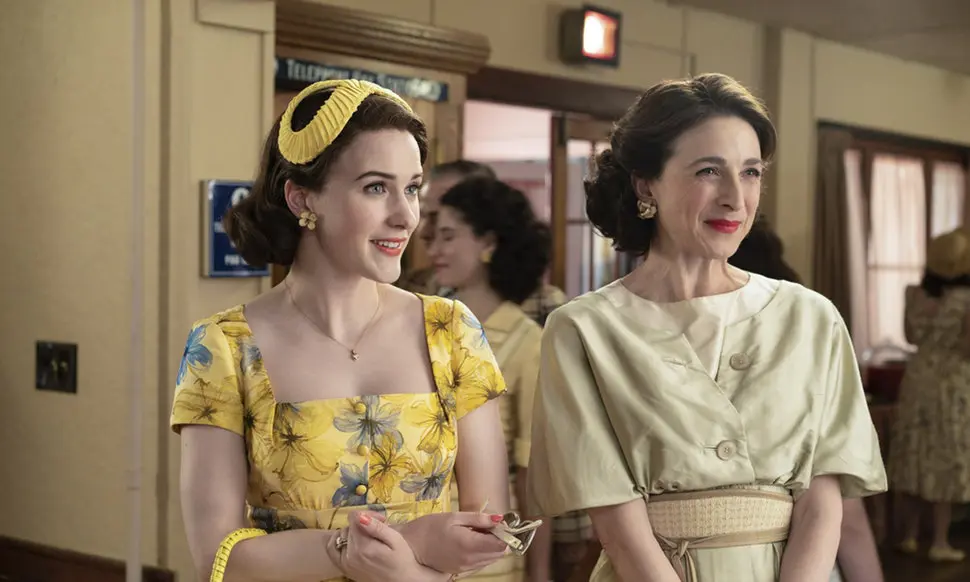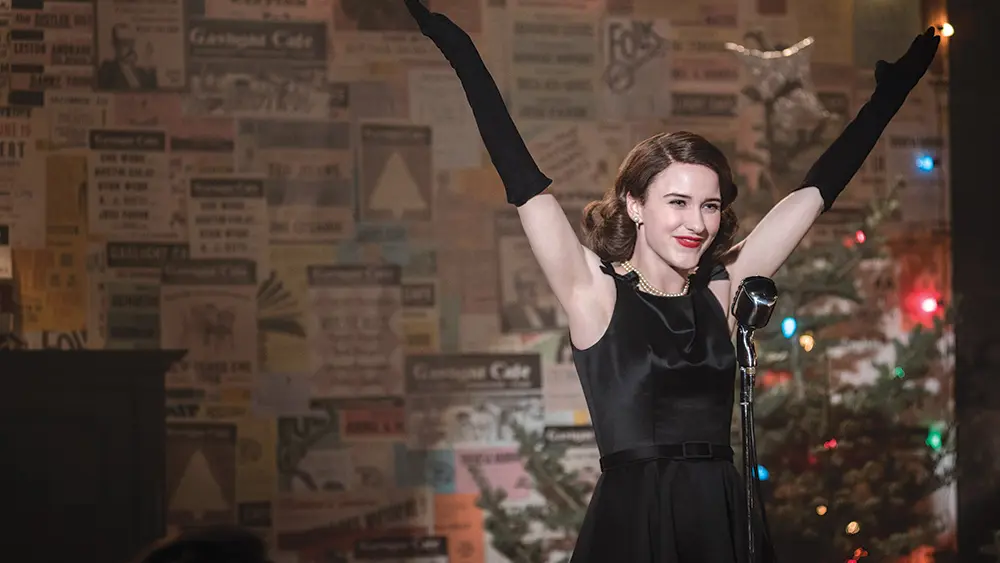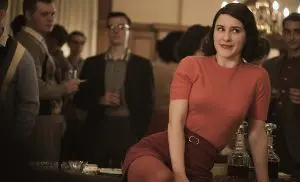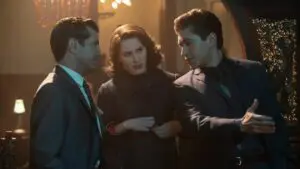Summary
The second season of The Marvelous Mrs. Maisel is like the first in its enthusiasm, but a little slower and with an expanded base as a result of its seasonal maturity.
In many of the ways that count, The Marvelous Mrs. Maisel is the epitome of consistency. Much that was good about the first season is as good in the second, and this is despite what may amount for some to the dissipation of its novelty. The steady footing in production, in writing, in acting, are again present in the second season, making it no question that The Marvelous Mrs. Maisel as a series has the stamina to last the long run.
There are signs of maturity, however. That maturity means that the value placed on a few of the elements composing the series is weighed differently.
For one, the showcasing of Mrs. Maisel’s stand-up comedy routine as the apotheosis of every episode is de-emphasized. Miriam (Rachel Brosnahan) has now entered into stand-up as a profession, as an observational comic, and so her routines are used as instances of her improving her craft by shaping insights purloined from various random though funny events that have occurred throughout her day. The decision is an acknowledgement that the coincidence of her natural talent for comedy and her unfortunate circumstances will not always avail her, and that continually pushing the frequency of the coincidence would begin to try the audience’s suspension of disbelief. It’s a sensible choice — however much we may long for the fluid, visceral approach taken in season one — because it’s a choice informed by the realities of life. We even get an episode where Miriam is not seen on the stage at all, at which point I found myself feeling that things were, in fact, copacetic.
Another sign of the series’ maturity is that the second season is 10 episodes long instead of the eight of last season, signalling that the series has a few more elaborate things to say about the world in its insightfully unorthodox way. The first couple of episodes are spent in Paris, a consequence to Rose (Marin Hinkle) moving there because Miriam and Abe (Tony Shalhoub) kept secrets from her in season one. While there, we learn so much more about Rose than could have been shown without the contrast as relief. We learn that Rose is an elegant, sophisticated woman and that her elegance and sophistication is much more substantial than Miriam’s.

Exactly what Rose has above Miriam is an understanding that, when in Paris, you do as the Parisians do, though the doing need not be a knock against your sense of power and self-possession, which should never be sacrificed. After a biting comment where Rose reveals the irony of Miriam demanding she return to New York for the sake of her marriage, Miriam is confronted quite literally by the lesson when a crowd of Parisians at a club ultimately fail to connect with the message of her stand-up because they are, of course, Parisians. By the end of the first couple of episodes, nevertheless, we learn to admire the adaptability of husbands to wives and wives to husbands, particularly when they are met with near irreconcilable differences in needs. The work done by Tony Shalhoub and Marin Hinkle as Abe and Rose Weissman during these episodes is truly laudable.
And that’s just what makes this series’ slight shift in emphasis altogether palatable: The series treats its supporting characters with consummate tenderness. When we watch Abe and Rose, we learn how some characteristics of Miriam’s made their descent. When we watch Imogene (Bailey De Young) or Susie (Alex Borstein), we learn what causes Miriam to want to live in two very different worlds. When we watch Benjamin, the newcomer to the series, we learn the oddity and stubbornness that is reflected in Miriam’s own personality. We care about Miriam and so we must care about her parents, her friends, her new courter, and because they also realize this, the writers for the series deliver. Nearly everything is connected and has consequence. While watching this season, I came to like — much more than merely empathize with — whoever was on the screen at the time, regardless the spat they might be having with another character of the series. I liked and felt for them all. Even Joel (Michael Zegen), for whom I had no high regard last season, during this season begins to admirably redeem himself.
From France to New York, from Pennsylvania to New Jersey, and back to New York again, this season is also a reminder of the theme implied in season one that family is the greatest team sport. The Maisels (including Kevin Pollak as Moishe and Caroline Aaron as Shirley) and the Weissmans display remarkable liveliness and courage as they navigate their families, careers, friends and love, and in all of their interactions, there is much wisdom to be gleaned. The Marvelous Mrs Maisel revels in and will continue to revel in the fact that life is complicated, though the fact shouldn’t stop us from periodically having a heartfelt laugh.




